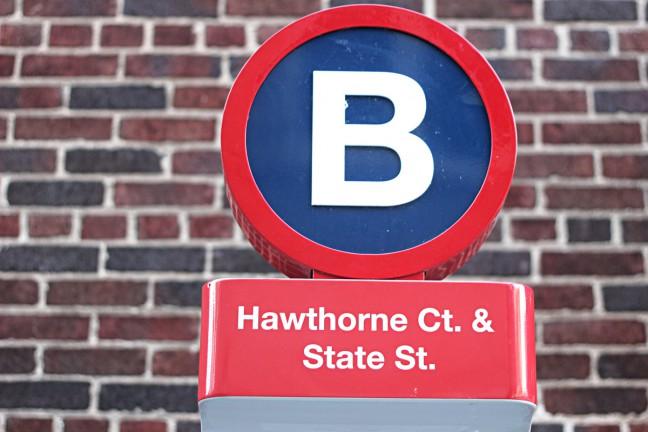Earlier this summer, over 200 community members joined Madison BCycle for a ride around Capitol Square to celebrate the launch of 300 brand new, electric bicycles.
Lisa Snyder, Executive Director of Madison BCycle, said the launch was more than just a gathering for community members. Satya Rhodes-Conway, the mayor of Madison, and John Burke, president of Trek Bicycle Corp. joined them for the launch in mid-June as well.
“Madison is the first bike share program to fully convert its fleet to electric,” Snyder said.
She said there were conveniences to riders in riding these bikes.
Snyder said the BCycle Electric is a pedal-assisted electric bike, meaning it doesn’t actually do all the work for you, but it gives you a boost.
“When you turn the power on, the electric motor amplifies your pedaling power to give you an assist of up to 17 mph. E-bikes are easier to ride, make hills & commutes no sweat and help you ride further,” Snyder said. “… They’re also really fun.”
Not only are the new e-bikes a helpful tool for people who already consistently rent from BCycle, Snyder said, but they’ve also encouraged community members who normally wouldn’t rent a folding electric bike to give it a try.
The electric bikes can potentially make it more practical for students to get from place to place while carrying heavy backpacks or additional weighted items.
“[The e-bikes] allow people to ride who might not otherwise be able to,” Snyder said. “Here in Madison, we’ve heard from riders that 37 percent of them are using their cars less often because of BCycle.”
BCycle has additionally always offered students discounts on annual memberships.
Snyder said University of Wisconsin students and faculty members have always been able to ride the BCycle bikes for an annual rate of just $20 (compared to $100 for non-students and faculty). But Snyder said the upgrade in the fleet caused some small price fluctuations.
“We revisited our pricing after eight years and a change in offerings with a moderate increase. For students, the annual membership went from $20 to $30,” Snyder said. “Still an incredible deal for as many e-bike rides of 60 minutes or less as you want.”
Bus Rapid Transit seeks to advance inclusivity in Madison public transportation
Emily Tomashek, a senior at UW, said the e-bikes sounded like a worthwhile investment.
She added that the old bikes were clunky, and the convenience of a better-working e-bike would likely not stir many complaints in the shifting price point.
“I think students would be okay with the upgrade in price,” Tomashek said. “Twenty to 30 dollars isn’t that much of a difference and compared to owning your own bike, it’s a lot cheaper.”
However, the fluctuation in price hasn’t stopped students and other community members from renting a bike and taking a ride through the Madison.
In fact, as stated by Snyder, people seem to be loving the e-bikes despite the increase in prices. They’ve had more riders rent their bikes, more trips taken and more positive feedback.
“We have overwhelming feedback that people love the electric bikes, and we are seeing it with 2.4 times the ridership,” Snyder said. “We’ve had 75,000 trips in two months since June 18. In comparison, we had 31,000 trips the same two months in 2018 with the red bikes.”
While the increased ridership has been appreciated, Snyder said BCycle has been learning to adjust to the rapid growth.
Snyder added that these increased challenges provide opportunity for adapting.
“With this much ridership, we have some great challenges to tackle to keep up with the demand, and with new riding patterns as people ride further than they did before,” Snyder said. “We’re quickly learning and adapting.”
While trying to accommodate over two times the amount of ridership than they’ve had in the past eight years, BCycle is also trying to figure out what to do with over 300 of their old red bicycles.
Snyder said Madison BCycle is currently in the process of finding a good nonprofit company where they can donate the bikes.
“We have been working with several nonprofits to find a second home for the bikes that were still in good condition (which was most of them),” Snyder said. “Of course, after eight-plus years of service, some bikes had reached the end of their useful lives. We salvaged any parts that could be reused, and recycled the rest.”
With the rapid success the e-bikes have brought Madison BCycle, Snyder thinks some other cities might eventually fully convert to e-bikes as well.
According to Snyder, cities that have already implemented some e-bikes into their fleet include Los Angeles, Philadelphia, Cincinnati, Omaha, Salt Lake City, El Paso, San Antonio, Fort Worth and Las Vegas.
“It’s really exciting for Madison to be at the forefront of this new trend that’s changing the transportation landscape,” Snyder said.





















